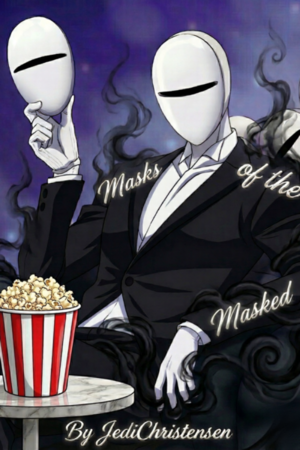Chapter 1:
Farewell to Myself
Farewell to Myself
The sun was slowly setting, and the evening light brushed the lace curtains like a final caress before nightfall. Édouard opened his eyes, still suspended between the end of a dream and the end of a day. He barely recognized the place. The walls covered in faded roses, the dresser with half-open drawers, the red velvet armchair facing the window — all of it belonged to someone else. To someone he had once been.
He sat up in bed, his joints protesting with dry cracks. Seventy-eight, whispered a voice inside him that he no longer always recognized as his own. Or maybe eighty ? The numbers danced in his head like dead leaves.
That's when he saw it.
Placed on his nightstand, between a glass of water and a small photo frame of a woman smiling with a cat in her arms, was a phone. Not one of those modern, flat devices his daughter had regularly tried to get him to use. No, this one was old, heavy, black Bakelite, with a circular dial and white numbers. Édouard stared at it, eyebrows furrowed. He didn’t remember owning it. In fact, he barely remembered anything these days.
The phone rang.
The ring was shrill, metallic, like a death knell in the muffled silence of the room. Édouard jumped, then instinctively reached for the receiver. His fingers trembled slightly — when had they started trembling like that ? He picked up.
"Hello ?"
His own voice sounded foreign to him, roughened by sleep and age.
"Hello, Édouard."
The voice on the other end was calm, composed, strangely familiar. It carried an accent he couldn’t quite place — something both soft and firm.
"I think you’ve got the wrong number," he said with a hint of irony. "I don’t know anyone who—"
"You still drink your coffee from the same cup, the one with the chipped handle ? You broke it fifteen years ago while making breakfast for Marguerite. She told you to throw it away, but you refused. 'Wounded objects have stories,' you said."
Édouard tightened his grip on the receiver. How could this person know that ? Marguerite... The name stirred something, a warm ache in his chest, a scent of lavender and fresh bread.
"Who are you ?"
"I know you very well. You have a scar on your left thumb. A woodworking accident when you were twenty. You were building a shelf for your first apartment, the one on Rue des Tilleuls. You cut yourself with a chisel, and Marguerite nearly fainted at the sight of the blood."
Édouard instinctively looked at his thumb. The scar was there — thin and white, nearly erased by time.
"That’s impossible... How do you know... ?"
"You’re wondering who I am ? But Édouard, you have no secrets from me... I remember the day you proposed to Marguerite. It was under the linden tree in Saint-Germain Park. She was wearing a blue dress with little white flowers. You’d rehearsed your speech for weeks, but when the moment came, all you managed to say was 'Will you ?' She laughed and said yes before you could finish. Did you forget ?"
The images came rushing back now, blurry at first, then sharper. A young woman with chestnut hair, a radiant smile, a dress twirling in the May breeze. Marguerite. His wife. Where was she now ?
"Your first argument was about a cat. You fell for that little ball of fur left on the sidewalk — you wanted to adopt it. She claimed she was allergic. In truth, she was afraid it would ruin the new curtains she had sewn for the living room. You kept it anyway. His name was Figaro, and you loved him for thirteen years."
"Stop," Édouard whispered. "Please stop."
But his voice lacked conviction. Something within him was opening, like a long-closed door groaning on its rusty hinges.
"And Claire’s birth. You were in the maternity waiting room, smoking cigarette after cigarette — you still smoked back then. When the nurse told you it was a girl, you cried. Not from joy, not from relief, but from fear. A deep fear of not being enough."
Claire. His daughter. He still remembered her, so tiny. She wasn’t so small now — there were wrinkles at the corners of her eyes, and sometimes she looked at him with a sadness he didn’t quite understand.
"Who are you ?" he repeated, but his voice was softer now, uncertain.
"You still don’t recognize our voice, Édouard ?"
That intonation, that way of pronouncing the 'r's, the familiar melody — captured once on shaky family VHS tapes, in bathroom echoes and in old phone conversations.
It was his voice. Younger, firmer, but unmistakably his.
"That’s impossible," he stammered. "I never... I don’t remember..."
"It was seven years ago, Édouard. When you received the diagnosis. When you were still... us. You knew what was coming. So you prepared this message. For this day. For today."
The receiver nearly slipped from his hand. Seven years. Blurred fragments came back: a medical office, a white coat, complicated words, Claire’s devastated face in the waiting room. Alzheimer’s. The word struck like a slap.
"You remember Dr. Lemaire ? He explained the phases, the progression. You asked a thousand questions. About treatment, life expectancy, about... the end. Ever methodical, you wanted to plan everything.
You were the one who suggested it: recording yourself for later. He found it a little odd, almost absurd. But it moved him. And he wanted to help. Thanks to him, I can call you today.
I recorded this message in his office, one November evening. You spent hours writing what you wanted to say. To the man you would become.
Claire knows nothing. And Marguerite…"
"Marguerite... Where is Marguerite ?"
Silence on the other end of the line. Then, with infinite gentleness:
"She passed away four years ago, Édouard. Pancreatic cancer. Swift and brutal. You’ve likely forgotten that trial... and perhaps that’s for the best."
Pain hit him like a wave — dull and terrible. Marguerite. Gone. And he couldn’t even clearly remember it. It felt like something essential was being torn from him, a part of himself he thought still whole.
"I’m sorry. I know it’s hard to hear."
"Why now ?"
"Why now ? I know you’re wondering.
The answer is simple — I believe the time has come.
You likely no longer recognize Claire when she visits.
Sometimes you call her Marguerite. You speak of memories she never lived... because they happened before she was born.
At night, you cry out Marguerite’s name, and Claire has to come calm you."
Édouard closed his eyes. Fragments came back: the face of a woman he should have recognized, her tears when she left, his own confusion facing a world growing more foreign by the day.
"Look at what we’ve become. A shadow who no longer recognizes his own daughter. A body she must wash and dress. A mouth she has to feed. The mixture of fear and sorrow in her eyes when she looks at us."
Édouard slowly opened his eyes and looked into the mirror across from the bed. He saw a stranger. An old man with thinning white hair, hollow cheeks, and lost eyes.
"We’ve always loved sunsets. We used to say you must know when to leave — when the colors are still beautiful. Ours is beginning, and it is splendid. Let’s not let it fade into black night."
"How ?" he asked simply.
"We were prepared for this day.
With the doctor, we spoke of dignity, of choice, of end-of-life matters. He had the words to express the unspeakable.
He accepted our decision, despite the risks he faced."
Édouard stood up slowly, took the phone, and walked to the window. Outside, the garden stretched out, green and peaceful. In the distance, he could see the silhouette of the linden tree the voice had spoken of. Its branches swayed gently in the twilight breeze.
"We have that little wooden box with the daisy inlay in the drawer of our nightstand. We kept it for today. For this very moment."
Édouard walked to the nightstand. His hands no longer trembled. In the drawer, between handkerchiefs and old letters, he found a small marquetry box. On its lid, a daisy delicately engraved like a jeweler’s work.
He took it and opened it.
Inside, small white pills — anonymous. He counted about ten. How many were needed ? He didn’t remember, but something told him it would be enough.
"We are the one Claire loved. The one who built treehouses, invented stories, still knew his own name.
We were a good father, Édouard. A good husband. A man of integrity.
Of course, she will miss us. But she would rather grieve the man you were than watch the one you’re becoming slowly fade away.
It’s time to leave her with a memory. A beautiful memory.
She will remember our laughter, our walks, the bedtime stories. Not this slow agony, not this ending that stretches further every day.
We must leave before becoming a stranger in our own body. We must remain, in her memory, as the man we were — not as the shadow replacing him.
Goodbye, me. Thank you for allowing us to remain dignified. And free."
"Goodbye... me."
Édouard gently placed the receiver back on its base. Silence returned to the room, but it was no longer the same silence. This one was peaceful.
He picked up the glass of water from his nightstand and sat in the armchair facing the window. The sun had now set, casting the room in a soft dusk. Outside, the caw of a crow echoed.
He took the pills into his palm. They were small, harmless-looking. He raised his eyes toward the park’s linden tree. Marguerite loved to sit beneath it on summer afternoons. She would read, he would tinker. Claire played in the grass.
He swallowed the pills one by one, unhurried, gazing at the garden. The water was fresh, it tasted of spring. When he finished, he put down the glass and closed his eyes.
Memories flooded in now, clear and vivid, as if they had been waiting for this moment to resurface. Marguerite in her wedding dress, Claire taking her first steps, Sunday family gatherings, laughter, dreams, tenderness. A whole life unfolding behind his closed eyelids.
He wasn’t afraid. He just felt... tired. Like after a long day of work well done. He could finally rest.
***
The next morning, Claire entered the room without knocking. She was carrying her father's breakfast: coffee in the chipped cup he loved so much, lightly toasted bread, buttered just the way he liked.
The room was bathed in soft light, suspended — as if the sun itself were holding its breath. Édouard was sitting in his armchair, facing the window. Motionless. Serene. Hands resting on his knees, eyes closed, a faint smile on his lips.
He looked peaceful. More peaceful than she had seen him in months.
On the side table: a half-empty glass of water. The telephone. And next to it, a small box, half-open, inlaid with a daisy.
Claire set down the tray and stepped closer. She placed a hand on his shoulder and felt the peace that surrounded him.
Then the phone rang.
She jumped. That old Bakelite phone her father had always wanted to keep... She thought it had been unplugged for ages. How could it still ring ?
She glanced at her father — still unmoving.
Then, slowly, she picked up the receiver.
"Hello ?"
"My darling."
The voice was her father’s. But not the voice of the past few months — hoarse and uncertain. It was the voice from before. Clearer, more confident — the one she had heard throughout her childhood, and long after. The one that told bedtime stories, called her on her birthday, that could still pronounce her name without faltering.
"Dad... ?" she whispered, her throat tightening.
"I left with dignity, as the man I had been, not the one I was becoming. I’m with Mom now. We’re still watching over you. I love you."
Tears now streamed down her cheeks, but she said nothing. She listened to that voice she thought she’d lost, that tenderness she hadn’t heard in so long.
"Take care of yourself. And don’t forget: we were happy. That’s all that matters."
*Click.* The line cut.
Claire remained still for a moment, the receiver in hand, her eyes fixed on her father’s peaceful face.
She no longer cried. A strange serenity washed over her, as if that voice from elsewhere had taken with it all the sorrow of recent months.
She stayed there for a while, in a silence that was no longer painful but full of presence. Then she opened the window wider. The wind came in, making the lace curtains dance. And with them, a dusting of light that seemed to carry every joyful memory, every shared laugh, the entire life of love that would go on beyond absence.
Outside, the blooming linden tree quivered in the breeze. A sweet scent drifted into the room.
Claire closed her eyes. And smiled.




Please sign in to leave a comment.